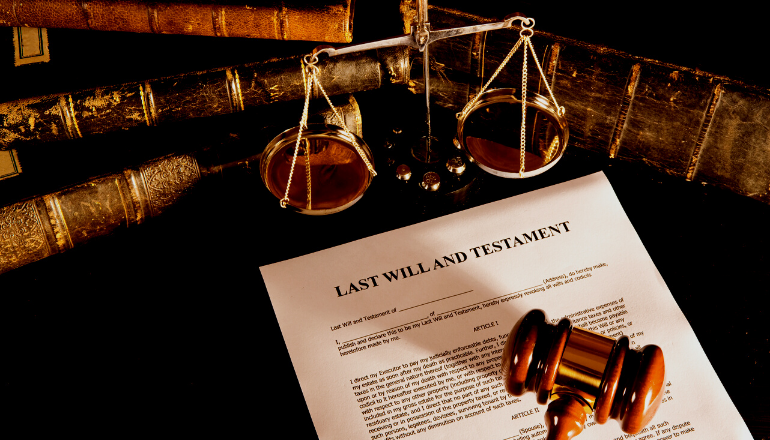A variety of estate planning strategies and tools are necessary for a successful estate plan. Among the most requirements, trust is the one. If you choose to include trust, you will need to appoint a trustee for your estate plan. Can you be the trustee of your trust? This article is about the reader’s estate plans.
What is a Trust?

A trust is a legal relationship. In this, the profit is enjoyed by another party. And property helder is another party. The person who creates the trust is ”trustor”, ”grantor” or ”settler”. The trustor sends the property to a trustee. The trustee holds the property for a trust. Then trust holds that property for the trust’s beneficiaries.
The overall job of a trustee is to invest and protect the trust assets. Also, administer the terms of trust present in an agreement. You can modify the terms at any point of your life till your death. Overall there are several types of trusts.
Types of Trusts
- Living Trust
- Testamentary Trust
- Revocable Trust
- Irrevocable Trust
- Funded or Unfunded Trust
- Credit Shelter Trust
- Insurance Trust
- Qualified Terminable Interest Property Trust
- Charitable Trust
- Blind Trust
Living Trust
A living trust is an inter-vivos trust. Made by a grantor or trustor during his/her lifetime. The assets or property intended for an individual during his/her lifetime. This type of trust allows the trustor to benefit from the trust in course of trust is alive. But after the death, these assets and property pass to the beneficiary. With a living trust, you can avoid probate court.
Testamentary Trust

A testamentary trust is often called a will trust. It is an agreement for the beneficiary, once the trustor has died. How the assets will be endowed to the beneficiary, is included in this trust. This type of trust is executed often by the executor of the will. And testamentary trusts are not revocable.
Revocable Trust
A revocable trust is like a living trust. It is created during the trustor’s lifetime. The terms can be changed, altered, or terminated during the trustor’s lifetime. It is often set up to the transfer of probate outside. In such a case, the assets are handover to the beneficiary after the death of the trustor.
Irrevocable Trust
An irrevocable trust is that which cannot be changed or altered during a lifetime of the trustor. And, cannot be revoked after the death of a trustor. Because such kind of trust is mostly about assets. Which are not movable back to the trustor. Most such kinds of trusts are tax-efficient. Irrevocable trusts are the most popular among all categories of trusts. Because it transfers whole assets to the next generation. However, living trusts either be revocable or be irrevocable, totally based on specifications.
Funded or Unfunded Trust
Funded or unfunded trusts, usually they either have funds in them or not. These trusts can be funded at any time. They can be funded till the trustor is alive or after his death.
Credit Shelter Trust
It is a bypass trust or family trust. This trust allows the grantor to grant some recipients an amount of assets. Also allows the tax exemption. This type of trust is very popular. Because these trusts do not add any kind of taxes to it. The estate remains tax-free forever, although even if it grows in size.
Insurance Trust

An insurance trust allows the trustor to include his/her insurance policy in the trust. It keeps the estate tax-free forever. This kind of trust is irrevocable. It does not allow the trustor to alter or bring any terms newly in the policy. But it allows paying the expenses regarding the estate.
Qualified Terminable Interest Property Trust
A qualified terminable interest property trust allows allotting assets at a different time to different beneficiaries. For example, a spouse gets assets after his father’s death and the son gets assets after his father’s death. In such a case, the children of the original trustor get the whole of whatever is left after the original trustor’s death.
Charitable Trust
In charitable trusts, the beneficiary is a charity or any nonprofit organization. This type of trust is built up during the lifetime of the trustor. Then rolled to the charity after his/her death. Some of the estates go to the family of the trustor after his/her death, and the rest is donated to the charity.
Blind Trust
A blind trust is a trust which is handled solely, without the beneficiary’s knowledge. This trust is mainly advising to avoid conflicts between trustors and beneficiaries.
Can I Be the Trustee of My Trust?

The real question is, can you be the trustee of your trust? The answer depends on the estate planning goal. For example, you can be the trustee of your revocable living trust. After naming you as a trustee, you have to decide the name of the beneficiaries. As the trustee, you continue to have access to and control over the assets just as you did before creating the trust. As the trustee of the trust, your chosen successor has to take care of the assets without involving the court in the matter and doing anything else.


